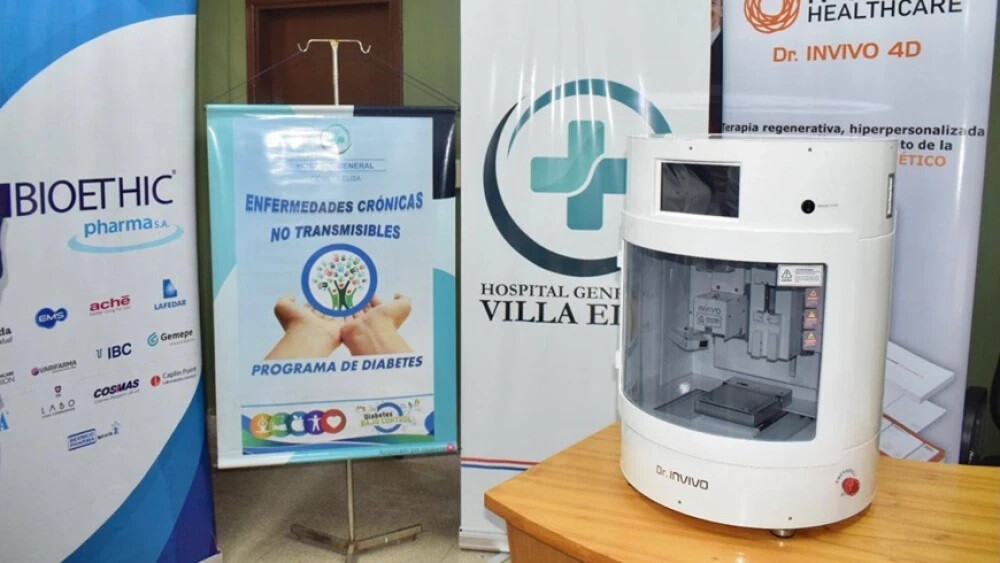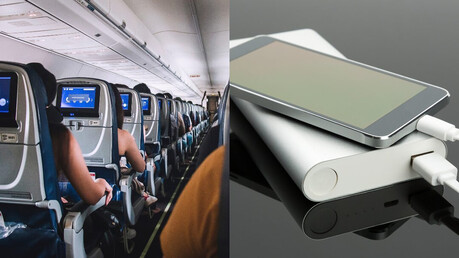
Villa Elisa, Paraguay – With an investment from the Paraguayan Ministry of Public Health, Villa Elisa General Hospital has introduced cutting-edge medical equipment, opening new horizons for treating patients with chronic ulcers, particularly diabetic foot ulcers. This equipment, based on Rokit technology, utilizes 3D-printed autologous patches, boasting a healing speed up to 50% faster than conventional treatments and is expected to significantly improve patients' quality of life.
Chronic ulcers are wounds that persist for more than six weeks or recur within three months. These are not merely skin issues but are often linked to various underlying conditions such as diabetes, venous insufficiency, and arterial diseases. Diabetic foot ulcers, in particular, are a common and severe complication in diabetic patients, where small wounds on the foot, due to nerve damage and poor blood circulation, do not heal easily and can become infected, progressing into ulcers. In severe cases, this can lead to amputation, causing physical and psychological distress to patients and imposing a significant socioeconomic burden.
Traditional chronic ulcer treatments have primarily relied on conservative methods such as wound disinfection, dressing changes, pressure relief, and antibiotic administration. These methods often involve prolonged treatment periods, low cure rates, and high recurrence possibilities, which have been major factors in diminishing patients' quality of life. Therefore, there has been an urgent need for innovative treatments that enable more effective and faster healing.
The advanced equipment, based on Rokit technology, introduced at Villa Elisa Hospital offers a revolutionary approach to chronic ulcer treatment. The core of this innovation is the 3D-printed autologous patch. This technology uses cells extracted from the patient's own blood or tissue (autologous cells) as bio-ink to create customized patches with a 3D printer. These patches are precisely applied to the patient's ulcer area, promoting cell regeneration and inducing blood vessel formation, thereby accelerating wound healing.
Key Advantages of Autologous Patches:
Faster Healing Speed: This technology shortens the healing and closure time of ulcers by up to 50% compared to conventional treatments. This means patients can reduce painful treatment periods and return to their daily lives more quickly.
High Biocompatibility: Since the patient's own cells are used, there is virtually no risk of immune rejection and fewer side effects. This significantly enhances treatment safety.
Customized Treatment: 3D printing technology allows for the precise creation of patches tailored to the size and shape of the patient's ulcer, maximizing treatment efficiency.
Reduced Complications: Faster healing reduces the risk of infection and, ultimately, contributes to lowering the incidence of severe complications such as amputation. This is the most crucial benefit, significantly improving the patient's quality of life.
Villa Elisa Hospital is also working to improve patient access to this innovative treatment. Patients suffering from diabetic foot ulcers can schedule appointments by phone without needing to visit the hospital in person.
Appointment Inquiries: (0985) 321-880 (Phone) Appointment Hours: Monday – Friday, 8:00 AM – 11:00 AM Consultation Hours: Tuesdays, 2:00 PM – 6:00 PM (with Dr. Griselda Sosa)
This appointment system is expected to be a great help, especially for patients with mobility issues or limited transportation access.
The introduction of this advanced equipment at Villa Elisa Hospital marks a significant step forward in elevating the quality of medical services in Paraguay. By applying 3D bioprinting technology in a clinical setting, it offers hope to patients suffering from chronic ulcers and suggests the potential for this technology to be used in treating other complex diseases.
This case can be seen as a result of combined efforts by medical institutions and the government to provide patient-centered healthcare and improve the quality of life. It is hoped that such innovative technology adoption and efforts to enhance patient access will continue, allowing more people to benefit from advanced medical care. This will be a significant catalyst for changing the paradigm of chronic disease management and contributing to the improvement of public health.
[Copyright (c) Global Economic Times. All Rights Reserved.]






























